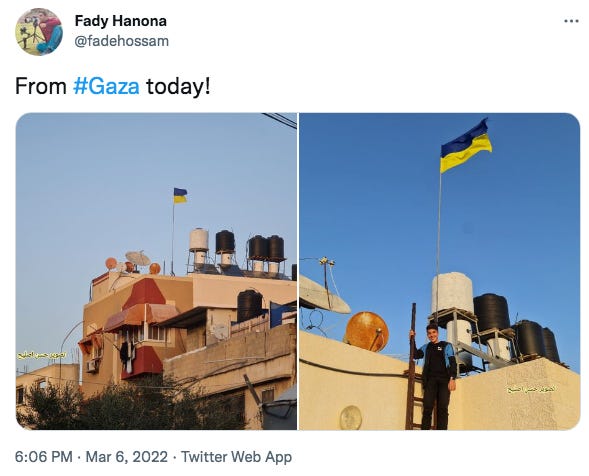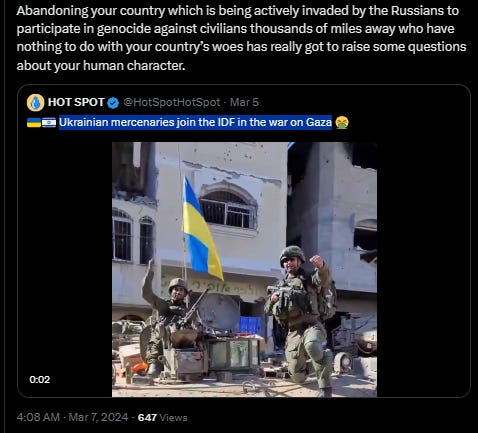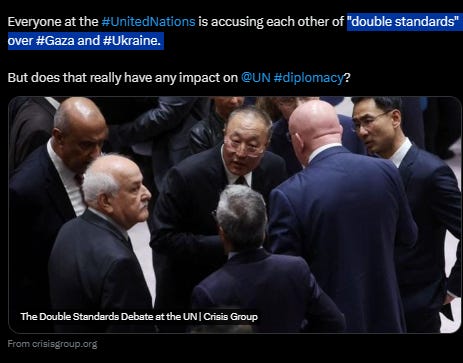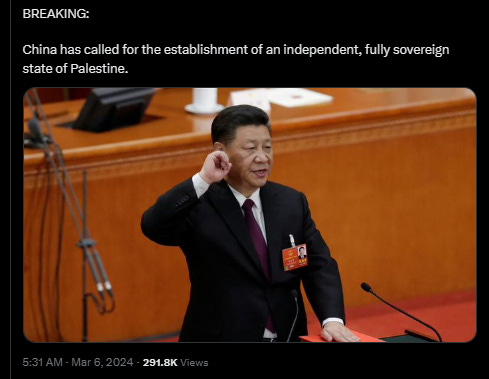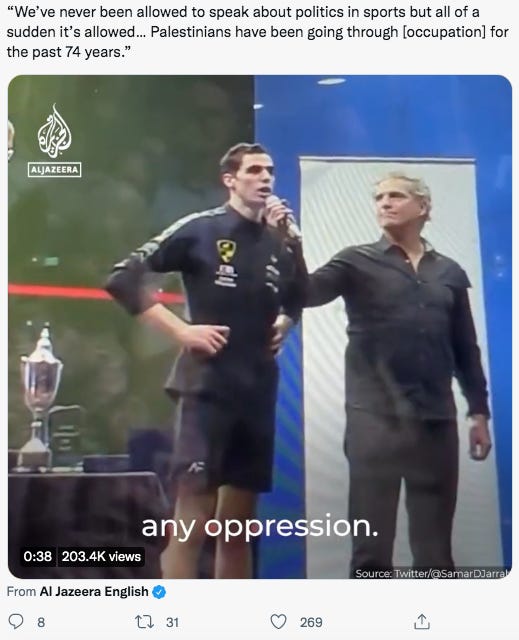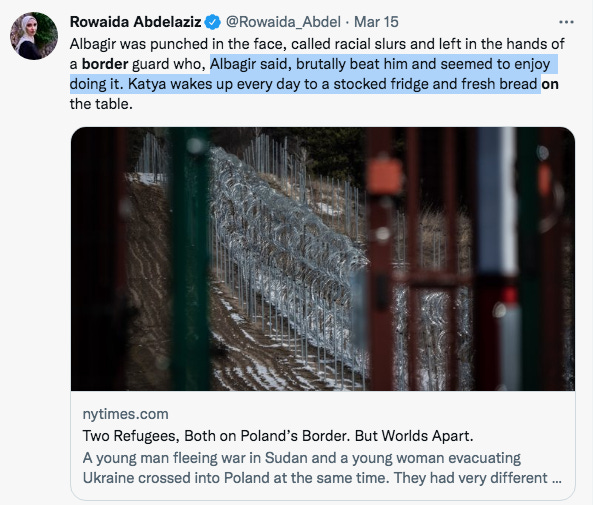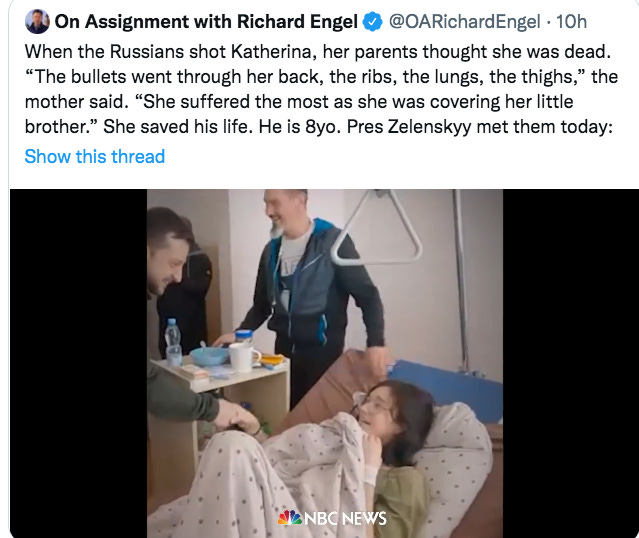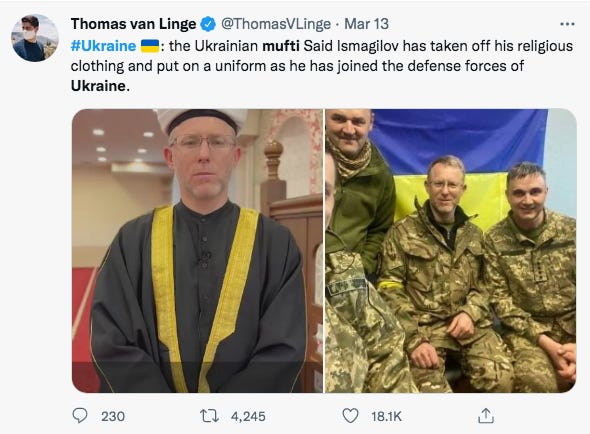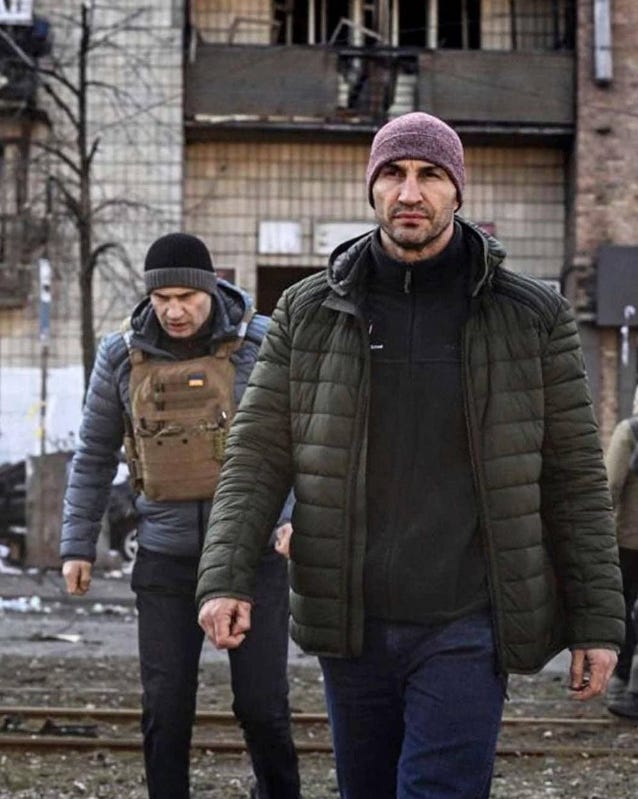Since Russia invaded Ukraine late last month, there has been no shortage of comparisons with the situation in Palestine.
For many who support Palestinian rights, there is an instinctive identification with Ukraine as a country under attack, defending itself against a much more powerful force.
No one can be indifferent to scenes of civilians experiencing the horror of war and to the lives of millions upended as they become refugees.
Campaigners for Palestinian rights have also noted the parallels – and the vastly different and hypocritical responses – to calls for boycotts of Russia and Israel, as well as the selective application of international law.
While Russia has been virtually cut off from the world, Israel continues to enjoy impunity as it occupies and colonizes Palestinians’ land and imposes a brutal regime of apartheid on them.
“We are like you”
Of course, the identification of Ukraine with the plight of the Palestinians is one Ukrainian leaders insistently reject. They see themselves as Israel and their Russian enemies, presumably, as the Palestinians.
In December, for example, President Volodymyr Zelenskyy said that Israel is “often an example for Ukraine” and asserted that “both Ukrainians and Jews value freedom.”
“We know what it’s like not to have [one’s] own state,” Zelenskyy added. “We know what it means to defend one’s own state and land with weapons in hand, at the cost of [their] own lives.”
According to The Jerusalem Post, Zelenskyy has also urged that “we should be like Israel in defending our homeland.”
The Ukrainian leader, notoriously, portrayed Israel as the victim last May when its warplanes were bombarding Gaza, massacring entire Palestinian families in their homes.
In February, before the Russian invasion, Ukrainian officials even complained that Israel was treating their country “like Gaza” by not giving them enough support – implying that such perceived mistreatment should be reserved for Palestinians, not Ukrainians.
Ukrainian officials have pressed home this identification with Israel ever since the Russian invasion began.
“I think that our army is one of the best in the world. Maybe after the Israeli army,” Markiyan Lubkivskyi, an advisor to Ukraine’s defense minister told The Jerusalem Post. “The army is very strong, because of experience and morale is very high, motivation is very high. We are like you.”
The same newspaper reported that Vitali Klitschko, the mayor of the Ukrainian capital Kiev, “says his models for how to win against all odds are Israel – a country he has visited and admires – and the IDF [Israeli army].”
“We have to learn from Israel how to defend our country, with every citizen,” Klitschko said.




